Two common approaches are destructuring and conventional Lodash-like pick/omit implementation. The major practical difference between them is that destructuring requires a list of keys to be static, can't omit them, includes non-existent picked keys, i.e. it's inclusive. This may or not be desirable and cannot be changed for destructuring syntax.
Given:
var obj = { 'foo-bar': 1, bar: 2, qux: 3 };
The expected result for regular picking of foo-bar, bar, baz keys:
{ 'foo-bar': 1, bar: 2 }
The expected result for inclusive picking:
{ 'foo-bar': 1, bar: 2, baz: undefined }
Destructuring
Destructuring syntax allows to destructure and recombine an object, with either function parameters or variables.
The limitation is that a list of keys is predefined, they cannot be listed as strings, as described in the question. Destructuring becomes more complicated if a key is non-alphanumeric, e.g. foo-bar.
The upside is that it's performant solution that is natural to ES6.
The downside is that a list of keys is duplicated, this results in verbose code in case a list is long. Since destructuring duplicates object literal syntax in this case, a list can be copied and pasted as is.
IIFE
const subset = (({ 'foo-bar': foo, bar, baz }) => ({ 'foo-bar': foo, bar, baz }))(obj);
Temporary variables
Can cause the collision of variable names in current scope:
const { 'foo-bar': foo, bar, baz } = obj;
const subset = { 'foo-bar': foo, bar, baz };
Block-level scope can be used to avoid this:
let subset;
{
const { 'foo-bar': foo, bar, baz } = obj;
subset = { 'foo-bar': foo, bar, baz };
}
A list of strings
Arbitrary list of picked keys consists of strings, as the question requires. This allows to not predefine them and use variables that contain key names, ['foo-bar', someKey, ...moreKeys].
ECMAScript 2017 has Object.entries and Array.prototype.includes, ECMAScript 2019 has Object.fromEntries, they can be polyfilled when needed.
One-liners
Considering that an object to pick contains extra keys, it's generally more efficient to iterate over keys from a list rather than object keys, and vice versa if keys need to be omitted.
Pick (ES5)
var subset = ['foo-bar', 'bar', 'baz']
.reduce(function (obj2, key) {
if (key in obj) // line can be removed to make it inclusive
obj2[key] = obj[key];
return obj2;
}, {});
Omit (ES5)
var subset = Object.keys(obj)
.filter(function (key) {
return ['baz', 'qux'].indexOf(key) < 0;
})
.reduce(function (obj2, key) {
obj2[key] = obj[key];
return obj2;
}, {});
Pick (ES6)
const subset = ['foo-bar', 'bar', 'baz']
.filter(key => key in obj) // line can be removed to make it inclusive
.reduce((obj2, key) => (obj2[key] = obj[key], obj2), {});
Omit (ES6)
const subset = Object.keys(obj)
.filter(key => ['baz', 'qux'].indexOf(key) < 0)
.reduce((obj2, key) => (obj2[key] = obj[key], obj2), {});
Pick (ES2019)
const subset = Object.fromEntries(
['foo-bar', 'bar', 'baz']
.filter(key => key in obj) // line can be removed to make it inclusive
.map(key => [key, obj[key]])
);
Omit (ES2019)
const subset = Object.fromEntries(
Object.entries(obj)
.filter(([key]) => !['baz', 'qux'].includes(key))
);
Reusable functions
One-liners can be represented as reusable helper functions similar to Lodash pick or omit, where a list of keys is passed through arguments, pick(obj, 'foo-bar', 'bar', 'baz').
JavaScript
const pick = (obj, ...keys) => Object.fromEntries(
keys
.filter(key => key in obj)
.map(key => [key, obj[key]])
);
const inclusivePick = (obj, ...keys) => Object.fromEntries(
keys.map(key => [key, obj[key]])
);
const omit = (obj, ...keys) => Object.fromEntries(
Object.entries(obj)
.filter(([key]) => !keys.includes(key))
);
TypeScript
Credit goes to @Claude.
const pick = <T extends {}, K extends keyof T>(obj: T, ...keys: K[]) => (
Object.fromEntries(
keys
.filter(key => key in obj)
.map(key => [key, obj[key]])
) as Pick<T, K>
);
const inclusivePick = <T extends {}, K extends (string | number | symbol)>(
obj: T, ...keys: K[]
) => (
Object.fromEntries(
keys
.map(key => [key, obj[key as unknown as keyof T]])
) as {[key in K]: key extends keyof T ? T[key] : undefined}
)
const omit = <T extends {}, K extends keyof T>(
obj: T, ...keys: K[]
) =>(
Object.fromEntries(
Object.entries(obj)
.filter(([key]) => !keys.includes(key as K))
) as Omit<T, K>
)
